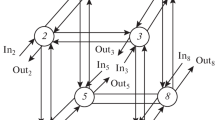Abstract
Following the broad classification given in Section 1.2.4, fully explicit parallelism will refer to the programmer (rather than the compiler) being responsible for (almost) every aspect of the parallelisation problem, including the partitioning of the program into processes, the mapping of these processes onto the processors and their synchronisation (in a broad sense). At first sight, the resulting approaches to parallelism do not blend gracefully into the functional framework of this book; after all, functional programming is mainly concerned with abstraction and according to, for instance, Skillicorn and Talia’s definition of full explicitness [541], explicitly parallel programs expose too much of their operational semantics (through low-level constructs such as message transfers or shared-memory access) to be viewed as illustrations of abstraction at work. There are some pragmatic reasons, however, for which one may wish to reconcile explicit parallelism with functional programming.
Access this chapter
Tax calculation will be finalised at checkout
Purchases are for personal use only
Preview
Unable to display preview. Download preview PDF.
Similar content being viewed by others
Author information
Authors and Affiliations
Editor information
Editors and Affiliations
Rights and permissions
Copyright information
© 1999 Springer-Verlag London
About this chapter
Cite this chapter
Sérot, J. (1999). Explicit Parallelism. In: Hammond, K., Michaelson, G. (eds) Research Directions in Parallel Functional Programming. Springer, London. https://doi.org/10.1007/978-1-4471-0841-2_18
Download citation
DOI: https://doi.org/10.1007/978-1-4471-0841-2_18
Publisher Name: Springer, London
Print ISBN: 978-1-85233-092-7
Online ISBN: 978-1-4471-0841-2
eBook Packages: Springer Book Archive




